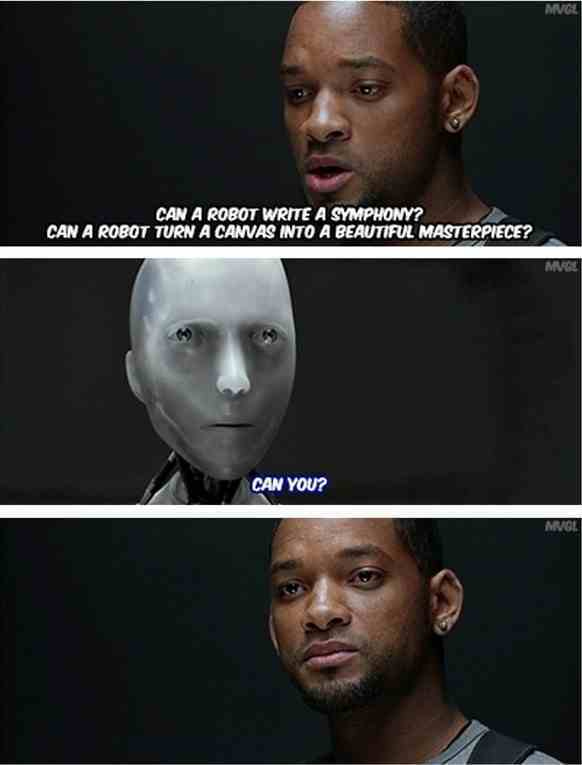Make sure AI doesn't take your job
You can move with the times or become really-really good at what you do, as good as humanely possible. Or better yet—both.
Artificial Intelligence is rapidly transforming the way we work. From automating repetitive tasks to making high-level decisions based on data, AI is no longer science fiction, it’s the reality of today’s workplace. Understandably, many professionals are worried: “Will AI take my job?”
While it’s true that some roles are being redefined (and in some cases, replaced), there’s good news—there are clear, proactive steps you can take to future-proof your career.
In my opinion, there are two primary ways to navigate the AI revolution. For most people, the smartest path forward is to lean in: embrace AI and the transformations it brings, use it to amplify your capabilities, invest in new skills, or even pivot to a new career if needed.
Those who leverage AI will hold a significant advantage over those who don’t.
That’s why the most strategic move is to learn as much as is practical about AI and stay informed about the latest tools.
Although AI is poised to take over much of the professional landscape, it won’t replace everything. In fact, a strong counter-market will likely emerge—one that values the explicitly human-made. There will always be demand for work that feels intentional, personal, and crafted by a real person. The key, however, is that in order to thrive in this space, you’ll need to operate at an elite level. Only the best will be able to compete and command attention—and compensation—for their craft.
Consider how we value artisanal goods today. A hand-knitted sweater holds far more emotional and aesthetic value than a mass-produced item from a big-box retailer. That same principle will hold true in digital domains: photography, design, music, writing, and other creative outputs marked as 100% Human-Crafted will carry a premium. Not because they’re faster or more efficient, but because they reflect intentionality, emotional depth, and the irreplaceable nuances of human creativity.
It’s also worth noting: even in these human-first niches, AI likely won’t be absent. It will quietly support logistics, analytics, scheduling, and coordination. Ignoring these advancements entirely would be akin to refusing to use smartphones or the internet. The balance lies in mastering your craft while using AI as an infrastructure tool, not a creative substitute.
You can move with the times or become really-really good at what you do, as good as humanely possible. Or better yet—both.
But do not sit in the middle.
1. Double down on human skills
AI is excellent at logic, speed, and pattern recognition but it still lacks emotional intelligence, critical thinking, and creativity. These human skills are what set you apart. Hone your ability to:
Communicate clearly and empathetically
Solve complex, ambiguous problems
Lead with emotional intelligence
Be adaptable in the face of uncertainty
The more you lean into these traits, the more irreplaceable you become.
You have to remember, AI can go where we have already been but not where we are going.
2. Learn how to work with AI, not against it
Instead of fearing AI, make it your co-pilot. Start learning tools that integrate AI into your workflow, such as:
ChatGPT or Notion AI for drafting, brainstorming, and summarizing
Midjourney or DALL·E for creative visual ideation
Zapier, IFTTT, or AI-driven automations in platforms like Google Workspace or HubSpot
If you can prompt, guide, and interpret AI outputs with precision, you’ll become indispensable—not obsolete.
3. Upskill constantly
Gone are the days when a degree was enough for a lifetime. The workforce of the future belongs to the lifelong learner. Make time to:
Take online courses in AI, data literacy, and automation tools
Attend industry webinars and conferences
Follow trends via newsletters, podcasts, and thought leaders on LinkedIn
Even small bits of knowledge can set you apart.
4. Become the bridge between tech and people
Every company needs translators—people who understand both technology and human needs. If you can:
Talk to developers and understand how AI systems work and
Communicate the business value to stakeholders or customers
you’ll be invaluable. Roles like AI Product Manager, Tech Strategist, or Innovation Consultant are growing precisely for this reason.
5. Focus on problems, not just jobs
Jobs come and go. But problems to solve? Those are eternal. Ask yourself:
“What problems do I solve for my company, team, or customers?”
Then figure out how AI can help you solve them better, faster, or more creatively. When you position yourself as a problem-solver, you’re more likely to thrive than be replaced.
6. Be visible, not just efficient
AI might outperform humans at behind-the-scenes efficiency, but visibility, personal branding, and reputation still matter. Make your work visible by:
Sharing progress and insights in meetings
Publishing thought pieces
Building internal documentation that helps others
People remember people who make an impact. Don’t hide behind the screen. Make yourself a thought leader.
Also, make friends. Friendships never hurt anyone.
7. Don’t panic—prepare
Yes, some jobs will disappear, it is to be expected, but many more will change, and new ones will emerge. The key is to be proactive, not passive. Use the rise of AI as an opportunity to redesign your career around what makes you most human and most valuable.
Behind the paywall:
A book that will change your outlook on business and life
A podcast that made me feel more hopeful about the future
Top 3 sources for business professionals to understand the technology better
Just now you can get the whole year at 50% off.




